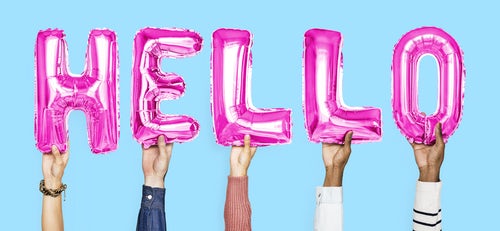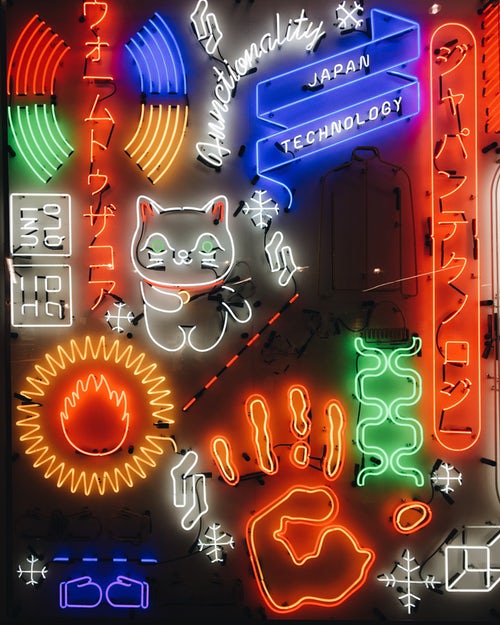
When asked in an interview recently about what motivated me, I paused briefly, answering casually but with conviction,
“Conversations that keep my mind open and making new quality connections is what keeps me going.”
I also know that I’m motivated by seeing women entrepreneurs doing a great job solving problems and Charlotte Wilkinson is one of those women. Charley, as she is otherwise known, first started out consulting, making her way to Asia with M&C Saatchi. She successfully progressed all the way up to become the Group Board Director, but she really wanted to get off the treadmill and do her own thing. We met for a coffee and coconut water at a local bakery to shoot the breeze recently and I found out that she’s interested in sustainability, branding and engaging women, and in 2017 she Founded Hello Sister. Inspired by our conversation, I’ve written up a digestible 10 minute read which looks more deeply into where we are today in Asia, and thoughts around how we can keep moving forward.
So what exactly do you do, and why do you do it?
Charlotte has spoken to a large variety of women across multiple verticals in the Asia Pacific region and works on inside innovation strategy coming up with product and service ideas that fulfill discrete women’s needs. In her work she is trying to understand the needs and values of groups of women who wear many hats not limited to being daughters, mothers, partners, sisters, friends, entrepreneurs and business women. As marketing evolves in the region, communication and dialogue is needed in order to understand the wants and needs of women more effectively, especially when they are a target demographic for your business. We are one but we also operate in very different ways and Hello Sister understands that we need better tailored messaging.
Who inspires you the most in life?
Charlotte’s mother bought up her family independently when her father passed away when she was very young, a tragic life event Charlotte and I both have in common and agree plays some part in what sort of women we are today. She went on to say,
“I always looked at her (mother) as a strong woman, but I am inspired by all the women I know. Friend’s that are doing great work and putting other women first inspire me a lot.”
Can you tell me a little about what assumptions we are making about women?
Many assumptions permeate the workplace and women in Asia don’t all like pink, floral dresses and Hello Kitty. Yes, children can be very important for some, but they are not at the center of everything we do. Many women want to come back to work after having children, but they can feel guilty leaving their children in the care of others. Some employers may also wrongly assume a mother’s head is not in the game fully when they come back to work. Charley rightly states, “As we all know, hours at the desk isn’t the same as impact, and it’s often a fallacy with women much more focused and determined after a career break.”

What are the challenges that you are facing?
Although there is a statistically significant relationship between diversity and innovation, female-centric businesses often see less funding. It has been reported that less than 5% of venture capital is invested in women-led start-ups, and yet female consumers make the majority of discretional purchases and play a big role in influencing buying decisions in the household. Often under-resourced and sometimes feeling vulnerable, women find accepting their inadequacies difficult, but often use the networks we have for support and advice. Charlotte adds, “The truth is we often value other women’s opinions within our circles, women are more inclined to put others before themselves (not just mothers) and women-led businesses have a connection to their target demographic and the drive to often make very successful businesses.”
Any initiative you saw recently that really made you say job well done, bravo!
The latest Gillette campaign has received backlash from around the world. It has to be said loud and clear so that all the people in the back can hear, it’s NOT about men losing and women winning. It’s about all of us arriving at a place that’s good for the world going forward and including men along this journey is important. Although all the regions in Asia are distinctly different family stereotypes put pressure on some women who feel that they have to be perfect mother’s and marriage pressures are common, causing feelings of inadequacy. SK-II ‘Meet Me Halfway’ in China casts light on single career women who feel like they have been left behind by society. SK-II embraced this by getting parents to understand how successful their daughters were, and meeting half-way with daughter’s so they can better understand their parent’s perspective. Charley continues: “They connect well with their core target audience in this two-part campaign and consistently deliver great work. That said there’s no one campaign that fits all, as we all know women are very different around the world.”
How do you know we are moving in the right direction?
The pace of change is different across all markets. In Indonesia and India for instance, women’s progress is very much political with anti-rape legislation and financial independence making moves in a promising direction, but are subject to censorship and changes in political control. In the UK, the Committee of Advertising Practice will ban gender stereotyping in adverts from June 2019 following a review by the Advertising Standards Authority. The Investors Association will also be applying a traffic light system flagging up red if the company’s board lacks women showing non-
compliance with best practices in areas of governance such as executive pay. Again, Asia is some way off the mark and progress is slow, but female representation at the top levels of management is clearly a key metric in terms of progression. Women on Boards in Singapore’s Top 100 SGX-listed companies is a focus of the Diversity Action Committee but still falls short of the 20% target for 2020. Charley also notes that interestingly Vietnam and Malaysia have much stronger female board representation, often relating to the larger number of family owned businesses in those countries.
What other demographics are currently under-serviced, and why?
50+ women are a particularly under-serviced demographic. They are often financially more empowered with disposable income, they are not the pioneer generation but they are travelling and may have greater purchasing power being less reliant on a spouse. Singapore has a diverse work force and the government in Singapore is offering Special Employment Credit to employers who re-employ citizens or permanent residents who are mature workers back into the workforce. Charley maintains that it still surprises her that this group of people is too often invisible and rather forgotten by brands.
What is your advice to anyone looking to engage more with women?
Charley emphasized: “The real challenge is being authentic in what you are doing.” Women accept being sold too to a certain extent but we prefer a genuine dialogue. We are commenting on brand pages on social media because we want to have a connection with brands and it needs to be more than transactional. Purpose driven businesses that are pro-women, paying equally or at the very least, moving in the right direction, will make more of an impact around International Women’s Day. On March 8th IWD was celebrated around the world where women empower other women to create a more gender balanced world #balanceforbetter and make real change happen.
People who have been working in diversity for a long time may question whether IWD is having enough impact. Charley is calling out the brands that make big statements around IWD that were not fully backed up. For instance, some brands looking to leverage their own agenda are not asking for permission to use the IWD logo.
Charley reminds us that the reality is that there is still not enough recognition of women, but any PR exercise that is making people consider women more, and helping men within businesses to understand how challenging it can be to be a woman, are still gains and moves in the right direction.

IWD celebrates the positive moves we have made when some women’s rights movement’s have had some unexpected negative repercussions lately #metoo. So how do we keep the momentum up so that International Women’s Day isn’t just that, one day?
“One of the biggest barriers to progress are role models in your life and career,” Charley admits. It follows that if there is a lack of senior women, as well as visibility and access to these women, there are fewer role models, and often role models that tend to motivate tend to look and act like you. One great initiative I’ve found is PrimeTime’s two-way mentoring scheme, which is a Business and Professional Women’s Association and non-for-profit in Singapore.
Hello Sister, in collaboration with Priyanka Nadkarni would like to champion female leaders by talking with women across all sectors in Asia who have positive stories about how they rose to life’s many challenges. If you are one of these great women and would like to speak to Charley more about their up and coming podcast How She Did It, please email [email protected].

